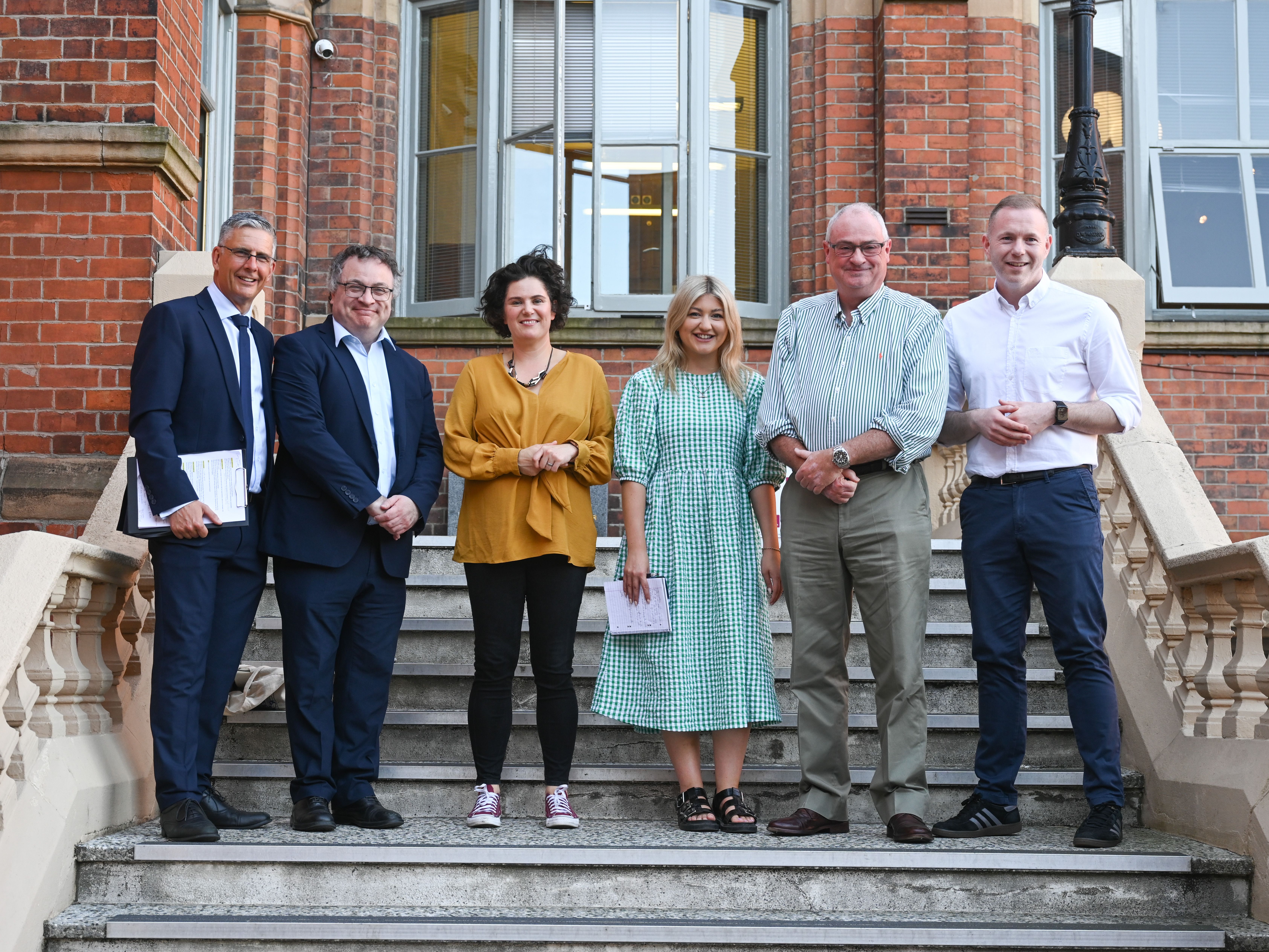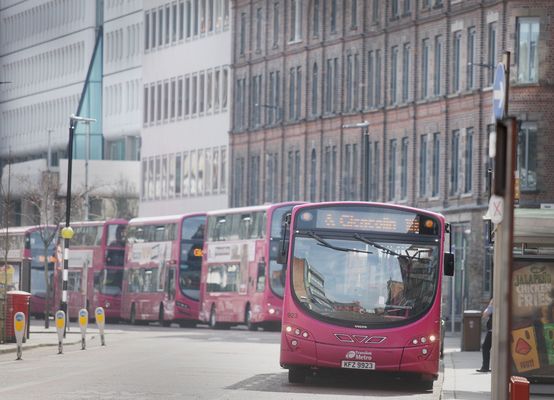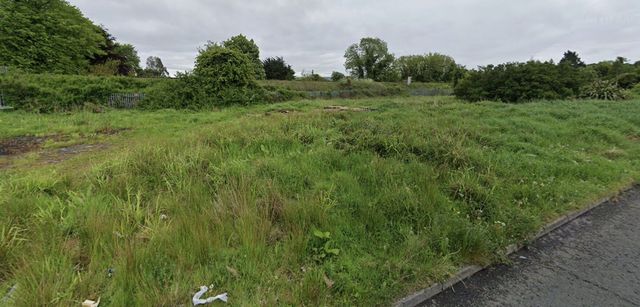People from all over Belfast and beyond gathered at St Mary’s University College for this year’s West Belfast Talks Back, held as part of Féile an Phobail.
The event consisted of a panel discussion hosted by the BBC’s Mark Simpson and featured Irish Journalist of the Year Aoife Moore, SDLP MP Claire Hanna, Sinn Féin MP Chris Hazzard, Alliance MP Stephen Farry and UUP MLA Steve Aiken.
Members of the public posed questions to the panel on a wide variety of topics, including the rising cost of energy bills and the cost of living crisis, Irish unity and a border poll, reforms to Stormont, the approach to drug policy and immigration.
The first question posed was on the energy crisis, and the panel were asked if they believed Ireland the UK should stop exporting their energy abroad, drill more oil, coal and gas, and use their own reserves in order to bring down prices for those who live here. The answer was a no from the entire panel.
Steve Aiken recalled his time as a submarine commander to note how 1000-year ice in the Arctic is now gone due to climate change, and how the Svalbard seed bank, which had plans to store all of the words seeds in the permafrost, was now suffering from melting ice, which could lead to worldwide famine. All other panellists were in agreement, adding variously that there should be no more drilling for oil, coal or gas, and that humanity needs to work harder than ever to combat the climate emergency. Sinn Féin’s Chris Hazzard said more investment needed to be put into wind, wave and solar, and all agreed a just transition away from fossil fuels was needed.
Tonight’s West Belfast Talks Back panel members speaking to Féile TV.
— Féile an Phobail (@FeileBelfast) August 10, 2022
A massive thank you from Féile an Phobail to our chairperson, our panel members, and everyone who attended the debate tonight! pic.twitter.com/uHL7CC2zSb
The second topic was perhaps the most divisive of the night, focusing on the issue of Irish unity and the possibility of an upcoming border poll.
Chris Hazzard said he thought “partition has been a scourge and has embedded sectarianism” and added that he believed there will be a border poll within the next five to ten years, but that no-one was calling for one immediately, as more discussions need to take place. Mr Hazzard also stressed the need for a Citizens' Assembly on Irish unity, and an orderly and peaceful discussion in which everyone can have a say.
Steve Aiken disagreed, saying he didn’t think there would ever be a united Ireland, that there wouldn’t ever be a border poll, and that he hoped there would not be one. Mr Aiken pointed to his time living in Dublin and the high cost of living there, and also said that any talk on Irish unity would have to also include talks on the Republic of Ireland rejoining the United Kingdom. Mr Aiken said his desire was to make Northern Ireland work.
Mr Hazzard replied: “You had 100 years to make Northern Ireland work and it isn’t working. Westminster won’t ever deliver for us.”
Claire Hanna said she believes that Brexit had changed the discussion, and that more talks were needed, but her hope was that a border poll would go ahead. She continued: "I would like to challenge the Northern Ireland Secretary to change the definition of when a border poll to be called, as at the moment it is too vague, and as with previous issues like this with British governments, they will postpone and delay.”
AUDIENCE: A few familiar faces were in the audience
Aoife Moore observed that in Dublin politicians were obsessed with the idea of changing the flag or national anthem, but that those were not the issues people needed to be thinking of. People should be thinking about what to do with the northern Civil Service, pensions and mortgages.
At this point, Steve Aiken and Chris Hazzard got into an argument concerning who was responsible for what during the conflict, before Ms Moore intervened to say that young people do not want to hear about who did what, that she didn’t care what happened a hundred years ago and they should be focusing on instead what they could be offering young people for their futures, as currently it is not being realised, with her hometown of Derry having high unemployment and "being top of all the lists you don’t want to be at the top of."
Alliance’s Stephen Farry said his party doesn't have a position on a united Ireland, but many members had their own opinions. He said he is personally open-minded about the issue, but would agree with Claire Hanna on needing more clarifications from the Northern Ireland Secretary, and would make up his own mind when the time came.
From the audience, Labour TD for Dublin Bay North, Aodhán Ó Ríordáin, said he believed the union is a failed political entity which had become nothing more than an English nationalistic project. However, more talk was needed to help people discuss a New Ireland, and how to collectively live together.
The next topic under discussion was immigration, and what should the policy be towards immigrants, giving recent crisies in Syria, Afghanistan and now in Ukraine.
Stephen Farry criticised Home Secretary Priti Patel for her attempts to demonise immigrants. Claire Hanna said the Home Office was creating a crisis in immigration in order to whip up anti-immigrant sentiment. Mr Farry and others bemoaned the prospect of Liz Truss becoming the new Tory leader, and said she was a "front woman for a dangerous right-wing libertarian ideology".
STORMONT: All panellists wanted to see the Executive get back to work
The next topic – reforming Stormont – had all panellists criticising the DUP (who turned down an invitation to be on the panel) for holding people to ransom by not forming an Executive. Criticism was also levelled at Stormont’s political architecture. By only allowing for unionist and nationalist designations, it prevents people who don’t designate as either, such as Alliance, from taking part if either unionists or nationalists decided to hold out.
Chris Hazzard said it was imperative to get the Executive back up and running, while Steve Aiken suggest the Good Friday Agreement be discussed again and taken back to its "factory setting". Claire Hanna said that "designation locks in sectarianism".
The final topic of the night was drug policy, and panellists were asked if we need a more liberal, health-centred approach to dealing with drugs, one which moves away from punishment and prison.
Aoife Moore noted the needle exchange in Dublin had been continually put on hold because residents in the area did not want a needle exchange facility beside their homes, and feared any plans to open one in the north would run into the same problems.
Steve Aiken said he was torn on the issue, saying health-based approaches and the criminal justice approach had both failed.
Ms Moore pointed out that Portugal’s system of decriminalisation had indeed worked, and Stephen Farry and Chris Hazzard agreed the Misuse of Drugs Act was out of date, especially when it came to issues such as marijuana.






